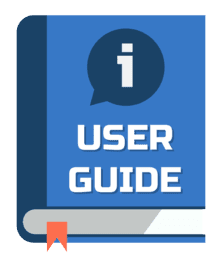Peningkatan Kapasitas SDM melalui Pelatihan Berbasis Teknologi untuk Mendukung Transformasi Nasional
Abstract
Keywords
Full Text:
PDFReferences
Ahmed, T., & Ward, R. (2016). The impact of e-learning on students’ learning behavior: A case study of a small higher education institution. Journal of Internet and Higher Education, 31, 32–45. https://doi.org/https://doi.org/10.1016/j.iheduc.2016.05.003
Ally, M., & Prieto-Blázquez, J. (2014). What is the future of mobile learning in education? International Journal of Educational Technology in Higher Education, 11(1), 142–151. https://doi.org/https://doi.org/10.7238/rusc.v11i1.2033
Armstrong, M. (2014). Armstrong’s Handbook of Human Resource Management Practice. Kogan Page.
Bartolomé, A., García-Ruiz, R., & Aguaded, I. (2018). Blended learning: Panorama and perspectives. RIED. Revista Iberoamericana de Educación a Distancia, 21(1), 33–62. https://doi.org/https://doi.org/10.5944/ried.21.1.18356
Brown, P., & Keep, E. (2018). Rethinking Skills Policy: Can Further and Higher Education Deliver on Social Mobility? Higher Education Quarterly, 72(4), 291–310. https://doi.org/https://doi.org/10.1111/hequ.12173
Bruck, P. A., Motiwalla, L., & Foerster, F. (2012). Mobile learning with micro-content: A framework and evaluation. BLED 2012 Proceedings, 21.
Cheng, Y., & Wang, X. (2021). E-learning and Employee Efficiency: A Technological Perspective. Journal of Learning Technologies, 45(3), 150–165.
Clark, R. C., & Mayer, R. E. (2016). E-Learning and the Science of Instruction: Proven Guidelines for Consumers and Designers of Multimedia Learning. Wiley.
Deterding, S., Dixon, D., Khaled, R., & Nacke, L. (2011). From game design elements to gamefulness: Defining “gamification.” Proceedings of the 15th International Academic MindTrek Conference: Envisioning Future Media Environments, 9–15. https://doi.org/https://doi.org/10.1145/2181037.2181040
Dodgson, M., Gann, D. M., & Salter, A. (2014). The Management of Technological Innovation: Strategy and Practice. Oxford University Press.
Dutta, S., Geiger, T., & Lanvin, B. (2023). Global Talent Competitiveness Index 2023. INSEAD Publishing.
Gamage, P., Perera, S., & Wijesekara, P. (2022). Workforce Training in the Digital Age: Efficacy of Technology-based Learning. International Journal of Human Resource Management, 33(4), 605–621.
Graham, C. R. (2019). Current research in blended learning. In Handbook of blended learning: Global perspectives, local designs (pp. 3–21).
Hite, R., & Railsback, S. (2020). Preparing Teachers for the Digital Age: A Model for Designing and Implementing Professional Development Programs. Journal of Technology and Teacher Education, 28(1).
Huang, L., Li, Y., & Zhang, J. (2020). Technology-Enhanced Learning: Impacts on Employee Skills and Performance. Journal of Digital Learning in Education, 14(2), 90–104.
Hug, T. (2015). Microlearning: A new pedagogical challenge (and opportunity) for the digital age. Wien: Austrian Computer Society (OCG), 31–36.
Hussein, M., & Nätterdal, C. (2015). The benefits of virtual reality in education: A comparison study. University of Gothenburg.
Kawidjaya, S. P., Nugroho, A. B., Pradesa, H. A., & Taufik, N. I. (2023). Persepsi Atas Kualitas Sistem Dan Informasi Dalam Mendorong Kepuasan Pengguna Sistem BJB Greens. Management Studies and Entrepreneurship Journal (MSEJ), 4(6), 7775–7788. https://doi.org/10.37385/msej.v4i6.2548
Kemenkominfo. (2018). Gerakan Nasional Literasi Digital 2018: Membangun Indonesia Cerdas Berbasis Teknologi. Kementerian Komunikasi Dan Informatika. https://www.kominfo.go.id
Kintu, M. J., Zhu, C., & Kagambe, E. (2017). Blended learning effectiveness: the relationship between student characteristics, design features and outcomes. International Journal of Educational Technology in Higher Education, 14(1), 7. https://doi.org/https://doi.org/10.1186/s41239-017-0043-4
Kirana, C.A.D., Harahap, A.S. (2022).Pendukung Keputusan dalam Penilaian Pegawai Pemerintah Non Pegawai Negeri menggunakan Metode Entropy. JURIKOM (Jurnal Riset Komputer), 9 (1), 159-166. http://dx.doi.org/10.30865/jurikom.v9i1.3846
McKinsey & Company. (2021). The future of work after COVID-19. McKinsey Global Institute. https://www.mckinsey.com/featured-insights/future-of-work/the-future-of-work-after-covid-19
Mugiarto, M., Agustina, I., & Suryaman, W. (2023). Adopsi Teknologi Aplikasi Aset Dan Kompetensi Pegawai Dalam Peningkatan Kinerja Pegawai Pengelolaan Barang Milik Negara Di Sopd Kota Cimahi . Management Studies and Entrepreneurship Journal (MSEJ), 4(5), 4823–4835. https://doi.org/10.37385/msej.v4i5.2800
Mustafa, A. (2020). The impact of mobile learning on student achievement in higher education: A systematic review. Journal of Educational Technology Systems, 49(2), 139–157. https://doi.org/https://doi.org/10.1177/0047239520934019
Noe, R. A. (2017). Employee Training and Development. McGraw-Hill Education.
Novira, A., Suherman, N.P. (2023). Penerapan Kebijakan Sistem Informasi Pemerintah Daerah pada Badan Perencanaan Pembangunan Daerah Kabupaten Garut. Konferensi Nasional Ilmu Administrasi, 7 (1), pp. 170 – 175.
OECD. (2020). OECD Digital Economy Outlook 2020. https://doi.org/10.1787/bb167041-en
Parker, G. G., & van Alstyne, M. W. (2017). Innovation, openness, and platform control. Management Science, 63(10), 3470–3495. https://doi.org/https://doi.org/10.1287/mnsc.2017.2757
Priyanto, E. (2021). The potential of virtual and augmented reality in Indonesia’s vocational education and training. Journal of Indonesian Education and Learning, 8(3), 394–404. https://doi.org/10.18488/journal.61.2020.83.394.404
Rahman, S. F. A., Yunus, M. M., & Hashim, H. (2020). The Uniqueness of Flipped Learning Approach. International Journal of Education and Practice, 8(3), 394–404. https://doi.org/10.18488/journal.61.2020.83.394.404
Ratten, V. (2020). Entrepreneurship and Innovation during Crises: The Role of Digital Learning and Social Networks in Entrepreneurship Education. Entrepreneurship Education and Pedagogy, 3(4), 346–367. https://doi.org/https://doi.org/10.1177/2515127420916738
Salas, E., Tannenbaum, S. I., Kraiger, K., & Smith-Jentsch, K. A. (2012). The science of training and development in organizations: What matters in practice. Psychological Science in the Public Interest, 13(2), 346–367. https://doi.org/https://doi.org/10.1177/1529100612436661
Santosa, H., & Wibisono, D. (2021). Gamification in corporate training: A case study of an Indonesian tech company. Journal of Training and Development, 7(3), 210–230. https://doi.org/https://doi.org/10.1108/JTD-01-2021-0001
SMERU. (2023). Accelerating Digital Skills in Indonesia. https://www.smeru.or.id
Taty, S., & Yulianto, H. (2016). Sistem Informasi Manajemen. PT. Leutika Nouvalitera.
UNDP. (2018). Human Development Indices and Indicators: 2018 Statistical Update. https://doi.org/10.18356/5e4c7d9b-en
UNESCAP. (2022). Accelerating digital skills for an inclusive digital economy in Indonesia. United Nations Economic and Social Commission for Asia and the Pacific. https://www.unescap.org
Wijaya, A., & Nugroho, H. (2021). The Challenge of Human Resource Development in the Digital Transformation Era: An Indonesian Perspective. Journal of Southeast Asian Studies, 48(2), 230–245.
WorldBank. (2019). Digital Adoption Index 2019: Measuring the Global Digital Divide. World Bank Group. https://www.worldbank.org
Yulianto, H. (2023). Paradigma Transformasi Sistem Pendidikan: Perspektif Fasilitator Sekolah Penggerak. Sagusatal Indonesia.
Yulianto, H., & Iryani. (2020). Pembelajaran Daring Di Masa Pandemi COVID-19: Komparasi Penggunaan Media WAG, Google Classroom, dan ZOOM. Konferensi Nasional Ilmu Komputer (KONIK) 2000, 298–306.
Yulianto, H., & Iryani. (2024). Manajemen Bisnis Digital: Dasar Konsepsi, Studi Kasus dan Strategi Bisnis. Sagusatal Indonesia.
Zainuddin, N., Hanifah, H., & Ariffin, M. (2022). Integrative Approaches to Workforce Development: Bridging the Technology Gap in Emerging Economies. Journal of Economic and Social Research, 19(1), 55–70.
Zhang, D., Zhao, J. L., Zhou, L., & Nunamaker, J. F. (2020). Can e-learning replace traditional classroom learning? Evidence from a meta-analysis. International Journal of Educational Technology in Higher Education, 17(1), 1–19. https://doi.org/https://doi.org/10.1186/s41239-020-00154-1
Zhou, M., Li, D., Wu, L., & Zhou, N. (2020). -learning in the COVID-19 Pandemic: A Case Study of Higher Education in China. Journal of Educational Technology Systems, 49(2), 127–133. https://doi.org/https://doi.org/10.1177/0047239520934019
Refbacks
- There are currently no refbacks.
@2017-2024
Jl. Hayam Wuruk No. 34-38 Bandung
Politeknik STIA LAN Bandung
Powered by OJS (Open Jounal Systems)


